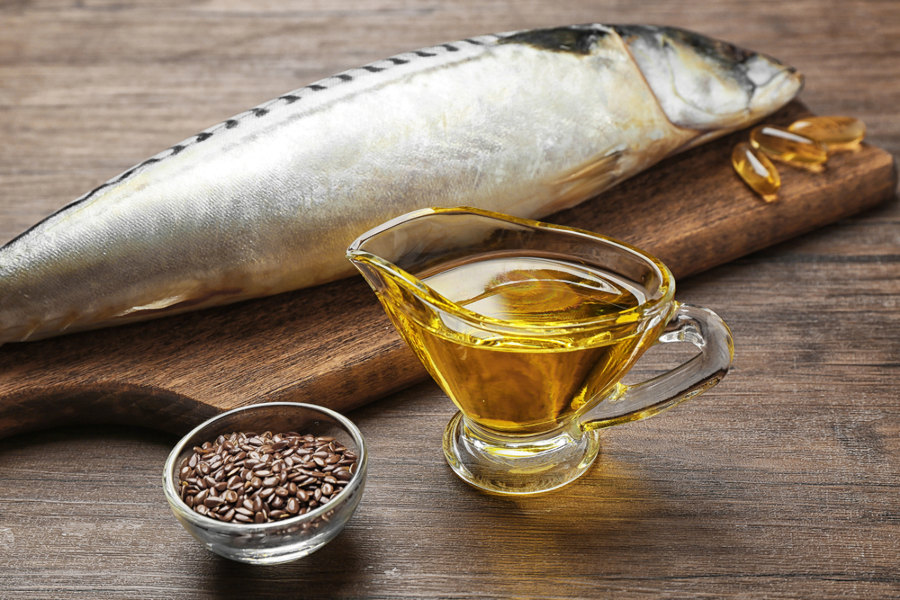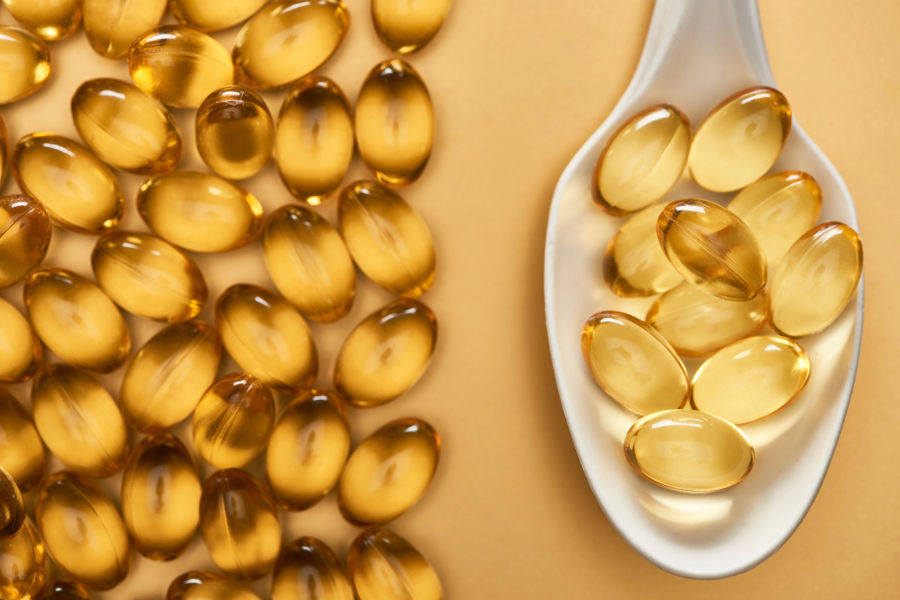Fish Oil and Top Supplements for Dry Eyes
Have you ever wondered why your eyes feel dry even after using eye drops regularly? Is eye discomfort disrupting your daily life and making simple tasks challenging?
Many people think eye drops are the only solution for dry eyes, but that’s not the full story.
I’m Martin Robinson, Owner and Principal Optometrist at Martin’s Eyecare in Tasmania. Over the years, I’ve seen countless patients struggle with the persistent discomfort of dry eyes. I’m passionate about educating individuals on the broader approaches to eye health, especially how nutrition and targeted supplements can help alleviate symptoms. In this article, I’ll share insights on which supplements may help manage dry eye and why addressing this condition comprehensively is key to better eye health.
Keep reading to discover how targeted supplements for dry eyes can transform your eye care management.
KEY TAKEAWAYS
-
Vitamins A, D, and B12 are essential for improving tear production, reducing inflammation, and repairing corneal nerves.
-
Omega oils, particularly omega-3 and omega-7, play a key role in enhancing tear quality and supporting eye health.
-
Eating fish like salmon, sardines, and mackerel provides natural sources of omega-3s, which help maintain a healthy tear film.
-
Spinach, sweet potatoes, and nuts offer important antioxidants and nutrients for maintaining healthy eyes.
-
Professional guidance is crucial when using supplements to avoid overuse and potential side effects.
-
Staying hydrated is a simple yet effective way to enhance tear production and boost eye health treatments.

Symptoms and Causes of Dry Eye Syndrome
Dry eye syndrome is a condition that can disrupt daily life. You might feel like your eyes have a gritty quality, as if you’ve got sand in them. Common symptoms like burning, stinging, blurry vision, and even light sensitivity are often exacerbated by environmental and lifestyle factors. Windy days, air-conditioned offices, prolonged screen use, or exposure to dust and pollen can all contribute to the discomfort.
The root causes of dry eye syndrome are varied but often boil down to two main issues: reduced tear production (a.k.a. aqueous-deficient dry eye) or increased tear evaporation (evaporative dry eye). Both affect the delicate balance of your tears, leading to tear film instability and irritation. Meibomian gland dysfunction plays a significant role in many cases, as these glands are responsible for maintaining the oily layer of your tears. When they’re not working properly, tear evaporation accelerates, leaving your eyes feeling dry.
Key Supplements for Managing Dry Eye
The right supplements can help alleviate dry eye symptoms by supporting proper eye functions.
Vitamin A plays a critical role in safeguarding your cornea. Deficiency in this vitamin can worsen dryness and lead to other eye health issues. However, because excess vitamin A can be harmful, it’s important to follow safe supplementation practices in consultation with your GP.
Vitamin D is another powerhouse for eye protection. It helps reduce surface inflammation and supports tear production, making it essential for those experiencing chronic dryness. Studies also show that individuals with vitamin D deficiency often report more severe symptoms, highlighting its importance for eye health.
Vitamin B12 offers additional benefits by aiding in the repair of corneal nerves. This not only helps with symptom relief but also improves overall ocular health. Combining B12 supplements with artificial tears can yield significant improvements for those with dry eye syndrome.
Health Benefits of Omega Oils
Omega oils, particularly omega-3s, are a cornerstone of dry eye management thanks to their anti-inflammatory properties and essential role in tear production.
Omega-3 fatty acids, found in fish oil, are essential for reducing inflammation throughout the body, including the eyes. Docosahexaenoic acid (DHA), a major component of omega-3s, is a structural element of the retina and helps maintain cell membrane health. Eicosapentaenoic acid (EPA), another key Omega-3, directly supports tear production and reduces inflammation in the oil producing glands of the eyelid, making it an important supplement for those with Meibomian gland dysfunction (MGD) and dry eye disease.
Omega-6 fatty acids, commonly found in vegetable oils, nuts, and seeds, must be carefully balanced with omega-3s. Some omega-6s, like gamma-linolenic acid (GLA), are claimed to have anti-inflammatory benefits. However, excessive omega-6s without adequate omega-3s can promote inflammation and actually worsen symptoms.
Omega-7 fatty acids, found in macadamia nuts and sea buckthorn oil, contribute to the health of mucous membranes, including the tear film.
Omega-9 fatty acids, found in olive oil, nuts, and avocados, are not essential because the body can produce them. But while they don’t directly impact dry eye symptoms, their anti-inflammatory effects and cardiovascular benefits may contribute to overall health, including eye health.
Lacritec, a supplement combining omega-3 and omega-6 fatty acids with borage seed oil, is a unique option for managing dry eye symptoms. It provides a balanced blend of omegas to support tear film stability and reduce inflammation.
Omega oils offer a versatile and natural solution to managing dry eye symptoms. Whether through diet or supplementation, these essential fats help keep your tears healthy and your eyes comfortable.

Which Fish Are High In Omega Oils?
Have you ever wondered which fish are best for supporting eye health? Fatty cold-water fish, rich in omega-3 fatty acids like DHA and EPA, can help with natural relief for dry eyes.
- Salmon: Widely available as both Tasmanian farmed and imported wild-caught varieties.
- Sardines: Readily found fresh and canned in supermarkets.
- Mackerel: Available as Spanish or blue mackerel.
- Anchovies: Available fresh, cured, or canned.
- Herring: Commonly sold smoked or pickled.
- Rainbow Trout: Farmed locally in Tasmania and Victoria, available fresh in many stores.
- Albacore Tuna: Available fresh or canned.
Incorporating these fish into your diet is an easy and delicious way to promote healthier eyes.
Which Fruit and Vegetables Are Good for Healthy Eyes?
For those following vegetarian diets, there are plant-based alternatives to fish. Flax seeds and chia seeds are rich in omega-3s, including DHA, EPA and alpha-linolenic acid (ALA). Algal oil is a vegan source of DHA and EPA, and some studies say it’s comparable to seafood in nutritional value.
The following fruit and veggies can promote overall eye health.
- Sweet Potatoes: These vibrant root vegetables are incredibly rich in vitamin A, offering twice as much as carrots! Vitamin A is crucial for maintaining clear vision, especially in low light, and protecting the surface of the eye from dryness.
- Spinach: This leafy green is packed with lutein and zeaxanthin, two antioxidants found in high concentrations in the macula of the eye. These nutrients help filter harmful blue light and reduce the risk of macular degeneration, making spinach a powerhouse for eye health.
- Oranges and Lemons: Citrus fruits are an excellent source of vitamin C, a potent antioxidant found in the aqueous fluid of the eye. Regular consumption of these fruits can help reduce oxidative stress and support the health of the blood vessels in the eye.
- Walnuts: These nutrient-dense nuts are rich in omega-3 fatty acids, which play a critical role in maintaining retinal health and reducing inflammation in the tear-producing glands. Adding walnuts to your diet is an easy way to support both the front and back of the eye.
- Beans and Legumes: High in zinc, these versatile foods assist in converting vitamin A into melanin, a pigment that protects the back of the eye. Zinc is also important for maintaining night vision and preventing the progression of age-related eye diseases.
- Avocados, Almonds, Sunflower Seeds: These are rich in vitamin E, a powerful antioxidant that combats oxidative stress. Regular consumption can help protect the eyes from conditions like cataracts and macular degeneration.
By making these choices part of your daily routine, you can take proactive steps to support your eyesight for years to come. Watch the following video by Dr. Joseph Allen from the Doctor Eye Health YouTube channel to learn more.
Practical Considerations for Using Supplements
It’s important to be cautious with fat-soluble vitamins like vitamin A and vitamin D. Combining multiple supplements without professional guidance can lead to unintended overdoses or ineffective results. Overuse can lead to toxicity, with side effects ranging from nausea to more serious health issues.
For those who prefer a natural approach, dietary changes can offer eye health benefits, albeit with limitations. Consuming fatty fish like salmon or mackerel regularly will boost omega-3 intake. However, the volume needed to match fish oil supplementation may be impractical and could increase exposure to mercury or other contaminants. For instance, to reach a daily intake of 1,000 mg of EPA and DHA combined, you would need to consume approximately five servings of salmon, 27 servings of tuna, or 35 servings of haddock per week. For most people, supplements provide a more consistent and practical way to achieve the necessary levels.
Fish oil supplements themselves are not without drawbacks. Common side effects include a fishy aftertaste, bad breath, or digestive issues like diarrhoea. High-quality supplements with enteric coatings can help mitigate these issues, making supplementation more comfortable and effective.
Lastly, staying hydrated is an often-overlooked aspect of dry eye care. While supplements address some root causes of dryness, drinking plenty of water supports overall eye health and enhances the effectiveness of treatments you may be using.
If you understand these considerations, you can use supplements confidently to support your eye health and avoid potential complications.
Brands We Like At Martin’s Eyecare
When it comes to recommending eye drops, I rely on tried-and-true brands that consistently deliver relief and comfort for dry eyes. Each brand we endorse at Martin’s Eyecare has been carefully selected based on its effectiveness, safety, and compatibility with a range of dry eye conditions.
For hydration and long-lasting moisture, Systane Hydration is a standout choice. It’s formulated with hyaluronic acid, which holds water on the eye’s surface for extended relief. Similarly, Cationorm offers multi-layered support, addressing both aqueous deficiency and lipid layer instability.
For those with more severe symptoms, Hylo-Forte is a reliable option. Its preservative-free formula is ideal for sensitive eyes, providing relief without irritation.
In cases requiring prescription treatment, Ikervis and Cequa are top recommendations. These drops target underlying inflammation, a common factor in chronic dry eye, helping to stabilise tear production and improve overall comfort.
Choosing the right product can make all the difference, and these trusted brands have consistently proven to meet the needs of our patients. Whether it’s mild dryness or more persistent symptoms, there’s an option to suit every pair of irritated eyes.
CONCLUSION
Omega oils and vitamin supplements can have a big impact on dry eye symptoms. They improve tear quality, reduce inflammation, and support overall eye health. By tackling the underlying causes of dryness, they give you a way to keep your eyes feeling more comfortable. Just make sure you use them correctly. Sticking to the recommended dosage helps you avoid side effects and get the best results.
If you have unique dietary needs or an existing health condition, it’s worth talking to a nutritionist. They can help you find the right supplements for your situation and ensure you’re making safe, effective choices. Not all supplements work the same for everyone, so expert advice is always a smart move.
Dry eyes don’t just go away on their own. Without care, they can get worse, leading to blurry vision and making tasks like reading or working harder than they need to be. But there’s no need to put up with the discomfort. A few simple steps can make a big difference. Don’t wait for dry eyes to disrupt your day—take control of your eye health now and book a dry eye consultation with Martin’s Eyecare. Your vision deserves it!
Come and see us at our Glenorchy optometry practice, just a 10 minute drive from the centre of Hobart.
Book your eye care appointment with us today at Martin’s Eyecare.
Call (03) 6272 8423 or use the “Book Appointment” button below.
– Martin Robinson, Optometrist & Owner.
